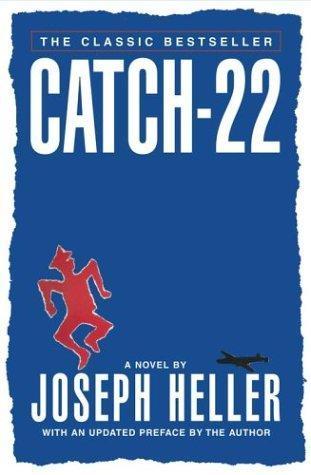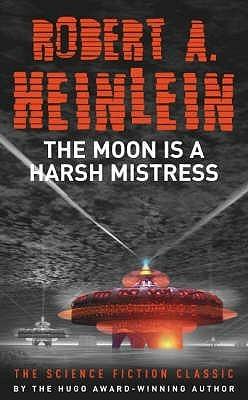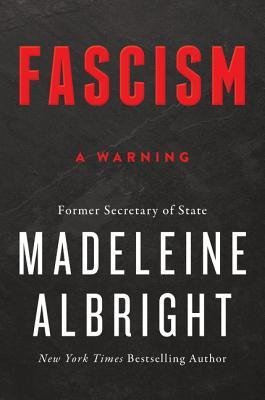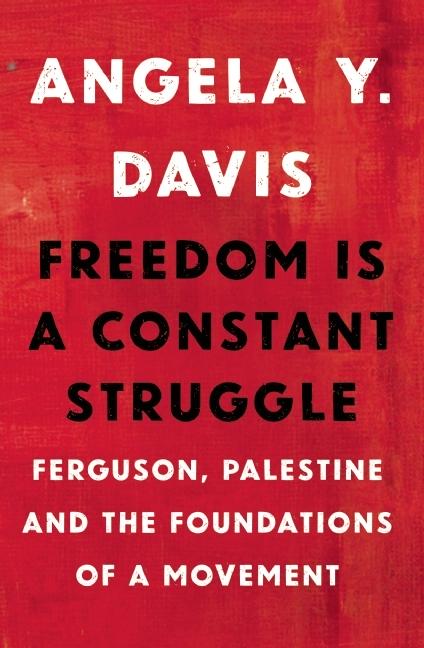Politics has shaped history, challenged ideologies, and ignited revolutions. The greatest political books of all time offer profound insights into power, governance, freedom, and human nature. From chilling dystopias like 1984 and Brave New World to foundational philosophies like The Republic and The Social Contract, these works continue to influence thought and debate. Whether exploring the dangers of totalitarianism, the struggle for justice, or the mechanics of political strategy, these books provide timeless wisdom. Dive into this list of must-read political masterpieces that have left an indelible mark on literature, society, and the ever-evolving landscape of global politics.
1984

1984 by George Orwell was written in 1949, which takes place in a scary dystopian world. Praised for its well-known political and societal critique, the book journeys through themes of totalitarianism, surveillance, and propaganda.
Although, at the time of its release it wasn’t very known, it is now easily thought of as the most creative and chilling book in the dystopian genre.
Fahrenheit 451

1953, Fahrenheit 451 was released, unleashing a powerful political piece of literature which has earned itself the title of the best science fiction book. Written by Ray Bradbury, the dystopian novel is placed in a scary atmosphere, a near future where books are burned instead of learned and read.
It explores themes of censorship and intellectual freedom This book will always remain the best of the best in Science Fiction.
Brave New World

Aldous Huxley wrote Brave New World in 1932, crafting unique dystopian bestseller which has now become the cornerstone of modern literature. The story follows into themes of technology, censorship control, societal conditioning, and loss of individuality and freedom of speech. Brave New World is a classic which will never get old.
Catch-22

Catch-22 was written by Joseph Heller in the year of 1961, and is a dark but satirical comedy and social commentary book which has many of dark humor. Taking place during the tragic world war two, this novel uses its dark comedy and bureaucratic contradictions through its remarkable “catch-22” logic to become a worldwide bestseller and an inspiration to many.
Animal Farm

George Orwell released this symbolic novella in the year of 1945, serving as a unique perspective through the lens of enslaved farm animals and their rebellion. It heavily critiques totalitarianism and the corruption of power, along with the dynamics of power and control.
The book earned Retro-Hugo Award in 1996 and as captured and maintained its place as the best satire comedy of all time.
A Tale of Two Cities

A historical literature said to be set in the times of the French Revolution, A Tale of Two Cities by Charles Dickens is a yearly bestseller. An early addition to the tapestry of literature and writing, it books explores the themes of sacrifice, bloodshed, revolting and the human cost of revolution. It has won itself the honourable title of the most read and widely honoured English classic.
A Clockwork Orange

A Clockwork Orange was written in 1962 by Anthony Burgess. This is a dystopian novel that investigates the underlying themes of free will, violence, and societal expectations. Known for its innovative language, the book became a bestseller and a cultural phenomenon. This book may not have been popular when it was published but bit will always remain a bestseller.
The Handmaid’s Tale

The Handmaid’s Tale was written in 1985 by the author Margaret Atwood wrote, publishing a dystopian novel that celebrate themes of gender roles, power and control, and societal control in a totalitarian government.
The novel is a yearly bestseller and has been awarded many awards, including the Arthur C. Clarke Award It stays and prevails as a remarkable work in feminist literature and speculative fiction.
The da Vinci Code

The Da Vinci Code was written by the Da Vinci Code in 2003, following themes of religion, art, politics in a fast paced mysterious novel. The book is a global bestseller, stirring controversy. It has a movie adaptation, further carving its place in popular culture.
The Communist Manifesto

Karl Marx and Friedrich Engels in 1848 wrote The Communist Manifesto, publishing a significant political and societal pamphlet that calls on overthrowing al capitalist systems and establishing a classless society.
The manifesto became the very book which sparked the Russian civil war and revolution which remains one of the most influential works in political theory.
The Bonfire of the Vanities

Tom Wolfe wrote The Bonfire of the Vanities in 1987, a dark satire novel that critiques 1980s excess, greed, and the social class in New York City. The book stays a bestseller for its cunning social commentary and complex characters. This book remains a key work in American fiction, always being an inspiration to lean on.
The Prince

Niccolò Machiavelli has written The Prince in 1513, revealing groundbreaking stradegy and provoking political critiqueIt shows interesting ways to sieze and keep power as a ruler and rioritizes pragmatism over morality.
Thought of as controversial, it introduced the term “Machiavellian” to explain cunning and ruthless political strategies. The Prince prevails as one of the most influential works in political works and philosophy.
It Can’t Happen Here

It Can’t Happen Here is a political novel by Sinclair Lewis published in 1935 that explores the takeover of America by a fascist government. Lewis outlines the potential of one demagogue reaching the upper echelons of government and, therefore, through national propaganda and an uneducated voting populace, how a fragile democratic structure can fall to tyrannical rule.
This novel was a bestseller and acts as a cautionary tale for why America historically needs to be ever-vigilant in its political system.
Choice of Weapon

A Choice of Weapons. Gordon Parks. 1966. This work is an almost autobiographical compilation of photos documenting the trajectory of Parks’ existence from rags to riches up to the time he became a photographer, filmmaker, and activist. The camera was Parks’ weapon of choice to combat racism, socioeconomic disparity, and injustice, and this holds true today.
Gone with the Wind

Gone with the Wind is a historical fiction work by Margaret Mitchell published in 1936. It chronicles the events of the American Civil War and subsequent Reconstruction eras, centering on a storyline altered by the Civil War as well as the transformation of Scarlett O’Hara, the novel’s protagonist, in her quest to maintain a sense of self.
It’s a national bestseller, winner of the Pulitzer Prize, and considered one of the best historical works of fiction in America—though many may be offended by the treatment of race and slavery.
They Call Me The Cobra

They Call Me the Cobra is an autobiography of Giovanni Di Stefano’s life. Giovanni Di Stefano is a somewhat infamous lawyer and entrepreneur, and this book captures his exploits throughout his life.
Di Stefano is infamous and notoriously known in many negligent and illegal paths as he has been the attorney for many criminal cases and high-profile persons over time. Therefore, he assesses his lives and times as the Cobra.
The Moon Is a Harsh Mistress

Sounds like The Moon is a Harsh Mistress by Robert A. Heinlein. It was published in 1966. It’s part of the science fiction canon and concerns revolutionary issues, independence, and issues of personal agency.
The overall story concerns a population on the moon trying to sever ties with Earth control, and it has to do with a relative political agenda of the author, human and artificial intelligence on the moon, and questions of human interpersonal freedoms. It’s a Hugo winner and a classic of the genre.
The Federalist Papers

The Federalist Papers is a collection of 85 essays by Federalists Hamilton, Madison, and Jay—all writing concurrently—and published in 1787–1788 to support Constitutional ratification. Basically, it’s the collection of articles supporting the political ideology of governance that would be established by the Constitution. It’s a vital part of American history and political philosophy relative to the U.S. government’s creation.
The Fountainhead

The Fountainhead is a philosophical novel by Ayn Rand published in 1943. It explores the tenets of Objectivism, Rand’s philosophical interpretation of ethics—through an analysis of absolute, rational, and self-serving creation in relation to the human spirit, and the facets of ethical evaluation that deviate from the acknowledgment of morally inherent rights to creation.
The plot follows Howard Roark’s life, a young architect who refuses to succumb to the world’s demands of conformity and instead champions his idea of what architecture should be. An overwhelmingly successful critical and financial undertaking.
Enigma Black

Sara Furlong Burr’s “Enigma Black” is a short story collection of dystopian fiction, elements of power and revenge, and survival. The main plot follows a young woman, Esmae, as part of an underground organization trying to destroy The Entity, the established corrupt governmental force. Her life is filled with turmoil, The Entity even killing most of her family and friends and her current situation with the underground organization.
She needs to come to terms with her morals of right versus wrong, her deceased loyalties versus new friendships, and the reality of revenge when nobody is guaranteed freedom, anyway. *Enigma Black* exceeds expectations of ordinary dystopian novels, a fast-paced, intense read, and characters who go beyond ordinary character evolution.
All the King’s Men

Robert Penn Warren’s All the King’s Men (1946) is a Pulitzer Prize-winning novel about populist politician Willie Stark and his politics from the Southeastern United States during the early to mid-twentieth century and with the corrupt inclination of American politics. As evaluated by the young political reporter/narrator Jack Burden, who champions Stark’s ascent to power until the inevitable descent and proper downfall occurs, Burden becomes more entangled with Stark at the expense of his professional reputation and personal relationships.
A convoluted story of life, politics, history, and excess, this extraordinarily ambiguous novel takes on themes of humanity, politics, and good vs. evil. All the King’s Men is an important American literary work that champions the idea of political success over personal integrity.
A Promised Land

A Promised Land is Barack Obama’s memoir of his presidency, part one, released in 2020 after leaving office. Essentially, it’s Obama’s story up to the present moment in his first term. Yet since we, as readers, know certain events and their endings, the perspective in which Obama chronicles his experience provides a balm of understanding as to what he did right and wrong during his first term.
Themes include race, the challenges of political engagement and politicians, and the challenges of nation-building for a nation still trying to simultaneously please and respect its own citizens and those of others.
Why Nations Fail: The Origins of Power, Prosperity, and Poverty

Why Nations Fail: The Origins of Power, Prosperity, and Poverty is authored by Daron Acemoglu and James A. Robinson, published in 2012. The theme of this work is that nations either succeed or fail based upon relative government and citizen structures as well as subsequent efforts made in time, compounded by a modern-day approach to the previously established realities. Ultimately, it’s not geography or nations failing because they’re born with certain proclivities. Instead, it’s the intentional action of those in power.
Acemoglu and Robinson assess the success and failures of inclusive institutions (the generation of opportunity, supporters of equality, minimal competitiveness) versus extractive institutions (the restriction of access, opportunity for all but a few) over time and cross-culturally in the contemporary realm to bring light to the case for inclusivity through an effective and persuasive approach.
The Republic

Plato’s Republic is one of the first political philosophies penned in 380 B.C.E. As a Socratic dialogue, the reader is presented with the dialogue of Socrates and then more theories about the just man, the just state, and the philosopher-king. Plato determines that the constructed society would be ideal with three social classes in a social hierarchy: rulers, warriors, and producers.
He concludes that only the philosopher-king can rule others (the most learned males who know the ideal forms) and that as long as there’s a constant moral code for society and educational betterment opportunities for all, society will thrive. He factors in analogies of awareness through the senses and reality, the tripartite soul, and other assorted philosophical exploits relative to ancient times and contemporary debate.
The Social Contract

Jean-Jacques Rousseau’s The Social Contract (1762) is a philosophical exploration of political authority and the contractual nature of social interaction between man and woman. It develops ideas whereby modern tyranny is challenged in the face of political freedom, something only guaranteed in social contracts which appeal to the general will of humankind.
Therefore, The Social Contract is intended to usurp the power of kings, the divine right of God, to champion in its place the legitimacy of a republican empire born of men and women and sustained by the contributions of men and women. The theoretical principles championed throughout are lauded for their universality, liberty, equality, fraternity because since the year 1762, what Rousseau has laid out is nothing but democratic common sense.
Fascism: A Warning

Fascism: A Warning is a cautionary tale of the world we live in and growing factions across the globe, published in 2018 by Madeleine Albright. Queen of the political castle, being the first female Secretary of State, Albright has met and studied her fair share of power-driven tyrants in her professional and personal life.
Therefore, she insists that anyone with any semblance of a democratic reality garnered from historical efforts needs to be aware of the remains of consumerism, anti-Semitism, and fascist wants for power projected on a global scale as efforts to void what has already been historically established. Instead, such efforts need to be recognized and remediated for such tyrannical endeavors as democracy, freedom, and human rights are universal concepts that should be fought for at all costs and across all borders. Thus, she uses historical-based assessments to support her position for non-leadership of contemporary persons for the sake of global integrity.
Between the World and Me

Between the World and Me is a 2015 published letter written by Ta-Nehisi Coates to his son. It’s almost like a memoir, an intimate experience of the black experience relative to America. Coates writes, as a black man, why he learned about America, what he’s learned from it, how he’s supposed to react, and what it means to be a black body.
Between the World and Me is sort of a memoir/metanarrative, a history, a book of sociological implications of a black man. It’s a New York Times bestseller and winner of the National Book Award for Nonfiction
Freedom Is a Constant Struggle

Freedom Is a Constant Struggle is both a compilation of essays and speeches and an ongoing conversation between Angela Davis and Frank Barat about the international fight for freedom and justice, published in 2016. Ultimately, Davis’ contribution brings forth her notions of social justice and political activism with an awareness of an international connection.
For instance, she talks about the prison industrial complex and police violence but also the intersectionality of gender and racial oppression elsewhere, not to mention the need to fight for the rights of Palestinians. Frank Barat’s contribution is that he compiles some of the topics within relative to a real-time update of Davis’ life and an intent of national scope to her debates. Thus, this is a timeless, inclusive work of socio-political struggle to connect those who champion justice and freedom to exist.

Leave a Reply
You must be logged in to post a comment.